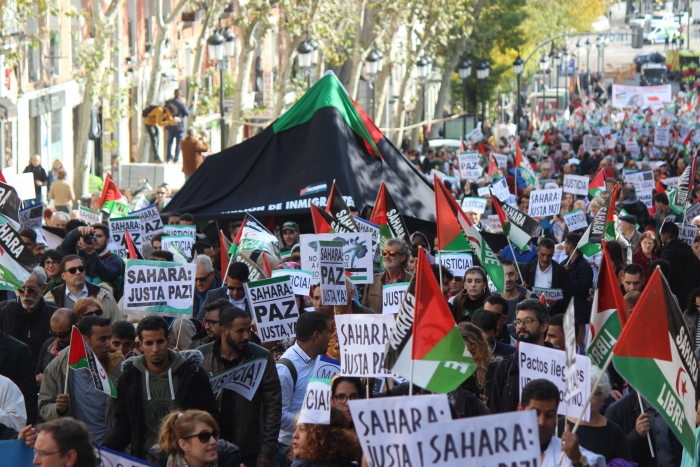Morocco moves closer to ‘privileged’ partnership with EU

Euractiv | 1 July 2019
Morocco moves closer to ‘privileged’ partnership with EU
By Benjamin Fox
Morocco has moved closer to its goal of obtaining a ‘privileged relationship with the EU’ following successful talks between Foreign Minister Nasser Bourita and the EU’s foreign affairs chief Federica Mogherini.
The ‘Euro-Moroccan Partnership for Shared Prosperity was announced at the end of the 14th meeting of the Morocco-EU Association Council last Thursday (27 June) and will include the relaunch of talks on a free trade agreement, and the prospect of Morocco being integrated into a number of new EU programmes and agencies. These talks are expected to start immediately and dominate the next 18 months.
More controversially, the EU also praised Rabat’s handling of the long-running dispute over the status of the disputed territory of Western Sahara.
The EU “welcomes the serious and credible efforts” of Morocco to obtain a peace settlement. In a further warning to the Polisario Front, the independence movement which claims to represent the people of Western Sahara, the communique calls on both sides to “continue their engagement in a spirit of realism and compromise”.
Morocco has sought to position itself as a bridgehead between Europe and sub-Saharan Africa in recent years, rejoining the African Union in 2017 and quickly becoming one of the major political players in the pan-African organisation. It has also sought to join the 12-nation Economic Community of West African States (ECOWAS).
But this diplomatic outreach has been complicated by the status of Western Sahara, which has been partially controlled by the Polisario Front and partly occupied by Morocco since a UN-brokered ceasefire in 1991.
Two judgements by the Luxembourg-based European Court of Justice in 2018 and 2019 stated that the disputed territory could not be considered part of Morocco.
The ECJ’s ruling added that any future agreements between the EU and Morocco involving Western Sahara would require the consent of the Sahrawi people, and directly benefit them.
The European Parliament endorsed the new EU-Morocco Sustainable Fisheries Partnership Agreement in February.
In the meantime, the peace talks appear to be in jeopardy after Horst Köhler stood down as the UN Secretary-General’s Personal Envoy for Western Sahara in May on health grounds, having brought Morocco and Polisario to the negotiating table for the first time in six years.
Meanwhile, Rabat has been one of the North African countries to hold talks with the EU to help Brussels control migration flows across the Mediterranean Sea.
However, Morocco led the AU’s opposition to the proposal agreed by EU leaders last year of setting up migration reception centres on African territory, in a deal modelled on the ‘cash-for-migrants’ pact between the EU and Turkey.
“People have to realise that migration is here to stay. Migration is a natural human movement but must be respected. We must promote legal migration but do all we can to combat illegal migration and human trafficking,” Bourita said in Brussels, adding that Morocco had no desire to be the “gendarmerie for Europe”.
“We have our own borders to protect and you also have to remember that Morocco is now also a country of destination for migrants and asylum seekers as well as a country of transit,” he added.
Morocco has invested plenty of diplomatic energy in its relations with Brussels. A Moroccan government official told EURACTIV earlier this year that it was seeking a “privileged relationship with the EU”.
Speaking following their meeting on Thursday, Bourita said that the EU-Morocco relationship had struggled in recent years and had been “losing its way and also its substance.”
“This was partly due to the fact that in recent years the EU seemed more busy with its own internal issues,” he said, adding that “we hope that this new joint declaration agreed with the EU today will give fresh impetus to the relationship.”
“Our partnership has overcome challenges and we have now turned the page,” added Mogherini, the EU’s high representative on foreign affairs.





